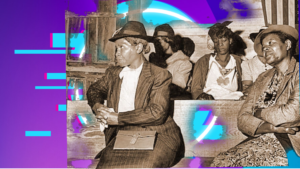Watch Night, also known as Freedom’s Eve, is an annual New Year’s Eve tradition observed by many African American churches. The occasion marks the anniversary of the Emancipation Proclamation, which freed slaves in the Confederate states during the American Civil War. On December 31, 1862, slaves in the Confederate states gathered in churches and private homes to wait for news that the Emancipation Proclamation had been issued, making them legally free.
The tradition of Watch Night can be traced back to the early 18th century in Moravian churches, where churchgoers would hold a vigil to reflect on the year past and contemplate the year to come. John Wesley later adopted this practice for his Methodist followers, who held similar vigils on the night of the full moon each month.
Watch Night services generally begin in the early evening and end at midnight. The services are typically attended by family groups, and many attendees go on to New Year’s Eve parties afterwards. In addition to reflecting on the memory of slavery and freedom, these services also include reflections on faith and celebration of community and strength.
While the tradition of Watch Night has been celebrated for over a century and a half, it still holds great significance for many African Americans. It provides a space for reflection, worship, and celebration of their history and resilience. In today’s context, the celebration of Freedom’s Eve also serves as a reminder of the ongoing struggles faced by Black communities, particularly in the criminal justice system. Despite the progress made since the Emancipation Proclamation, Black people continue to face disproportionate levels of violence and discrimination at the hands of the police and other institutions.
As the nation enters a new year, the tradition of Watch Night provides an opportunity to come together as a community and to reaffirm our commitment to fighting for justice and equality for all. The memory of slavery and freedom, and the struggles and triumphs of the past, remind us of the power of community and the importance of continuing to fight for a better future.
In 2021 the Calling Up Justice practice collaborated with Ayodele Nzinga to produce “The Call”. This livestreamed ritual began the digital Watch Night that we have now expanded to be a durational performance. Our Perpetual Watch Night lives in a digital space where we can all leave messages and wishes for Black lives throughout the year.

